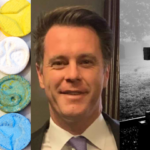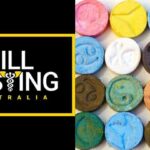Melbourne Mass Drug Overdose Provides the “Mandate” to Rollout Pill Testing

Eight festivalgoers were in critical condition following a mass overdose incident at Melbourne’s Hardmission Festival last Saturday night. And so widespread was the negative impact upon those who’d taken the same bad batch of pills that event medics had to call for backup.
Victorian Ambulance Union secretary Danny Hill told the ABC that “quite a number of people have overdosed or had a reaction to an MDMA derivative drug”, meaning more than eight suffered bad reactions. And he added that seven were put in an induced coma, with a breathing tube inserted.
However, this hardly had to be the way. MDMA is one of the least harmful drugs. But at too high a dose or when it’s cut with toxic substances or if there is an issue at the manufacturing stage, the substance can lead to death, just as alcohol can if it is made in any of these aberrant ways.
And while some would say raising the fact that MDMA is relatively low on the scale of drugs harms is an issue, the truth is that NSW and Victorian politicians have been reckless with the lives of some of their more youthful constituents, as there has long been clear evidence that drug checking works.
Indeed, so successful is pill testing that following a trial at a fixed site in Canberra, the ACT has determined to continue the CANTest Health and Drug Checking Service on a more permanent basis. And that’s also why the EU developed pill testing best practice guidelines at least a decade ago.
The legal profession has long agreed
“The government has an obligation to ensure that young people are safe at festivals,” said Australian Lawyers Alliance criminal justice spokesperson Greg Barns SC in a statement. “Year after year, young people die or suffer serious harm at music festivals and drug checking will help to minimise this.”
“Fixed and festival-based services that check the content and purity of illicit drugs will help prevent these types of drug-related health emergencies,” he continued. “As well as analysing the illicit drugs, these services provide valuable advice to help people make informed decisions about drug use.”
Support for drug law reform amongst the legal profession has been growing over the last decade. ALA has long been campaigning for an end to the zero-tolerance law enforcement approach to illicit substances, and it supports the implementation of harm reduction interventions like drug checking.
Barns further points out that year-after-year young people are dying despite the clear evidence that whilst pill testing may not be a silver bullet, it is effective in pointing out toxicity and levels of a substance that are potentially lethal.
Over the 12 months to December 2015, six young people died in drug-related circumstances at festivals nationwide. Over the 13 months to January 2019, six young people died at NSW music festivals alone in drug-related circumstances.
“Human lives matter more than failed prohibitionist drug policies,” the criminal defence lawyer underscored. “Simply exhorting young people to ‘say no to drugs’ does not work and the government needs to listen to health experts on this issue.”
So too has the Church
Australian Lawyers Alliance pointed out that last September, Victorian state coroner John Cain recommended implement drug checking services, whilst Uniting, in its release this week, noted that in 2019 NSW state coroner Harriet Grahame did the same in relation to six NSW festival deaths.
This week, Uniting NSW.ACT renewed its urgent request to the NSW government that it implement pill testing, as it did in conjunction with Unharm, The Royal Australian College of General Practitioners and the Australian Festivals Association last September.
But just like a Coalition premier, current state leader Labor’s Chris Minns assured that the clear solution to reducing harms by a long shot would not be rolled out. And two deaths occurred at a Sydney music festival just weeks afterwards, while the Netherlands implemented pill testing in 1992.
Uniting, along with the ever-growing drug law reformist-minded section of the community, are upset with Minns, as, after running on a platform of drug law reform via a drug summit, at the first sign of conservative inquiry on the matter, the premier pushed the meeting back to sometime in the future.
The ACT has further rolled out a drug decriminalisation system that commenced in October, and a few months prior to that taking effect, the Daily Telegraph decided to press the premier on the issue of such policy taking hold here, to which Minns replied that the public has given “no mandate”.
Uniting, however, launched Fair Treatment in 2018, which calls for decriminalisation in NSW and the ACT. This campaign is supported by over 70 organisations including the NSW Bar Association, NSW Community Legal Centres, the Aboriginal Legal Service and Australian Lawyers for Human Rights.
‘Our hearts go out to families and friends of those who are currently being treated in hospital,” said Uniting NSW.ACT general manager external relations and advocacy Emma Maiden, in relation to the weekend tragedy, which was an event that “should have been a day of fun and celebration”.
“This threat to these people’s lives could have been avoided. The summer festival season is well underway and if one life is saved because of drug checking, it is worth it. If one person decides not to take the drug they have purchased or to take less, because of drug checking, it is worth it.”
Top brass calls for pill testing
Not only are the legal eagles and those of faith calling for pill testing implementation, but there are a number of former law enforcement agents that, following having exited the force, have revealed that they too consider pill testing the way to go.
The most high profile of them has been former AFP commissioner Mick Palmer, who called for drug checking at the National Press Club in September 2018, and then a few months later, told Sydney Criminal Lawyers that all the government has to do is look at the evidence.
“Wherever pill testing has been trialled – and it’s been trialled quite extensively in Europe – it’s had a very positive effect,” Palmer said half a decade ago. “It’s been seen to reduce drug intake levels. Having found out what’s in their pills, people have decided not to take them.”
One would have thought that when you have the ex-head of the federal police advocating for the rollout of pill testing that politicians would start listening. Yet, at the time the former top cop was spruiking the evidence, NSW premier Gladys Berejiklian’s favoured line was “there is no evidence”.
That was back in 2018, however. These days, the ACT has had a successful fixed site drug checking service running since mid-2022, and NSW Greens MLC Cate Faehrmann has her Pill Testing Trial Bill 2023 before NSW state parliament, which facilitates a likeminded rollout in the premier state.
But despite the clear evidence, strong public support and the obvious devastation of scenes last weekend in Melbourne, both NSW premier Chris Minns and Victorian premier Jacinta Allan continue to consider a few dead and harmed youths worth it in an antiquated attempt to shore up votes.







